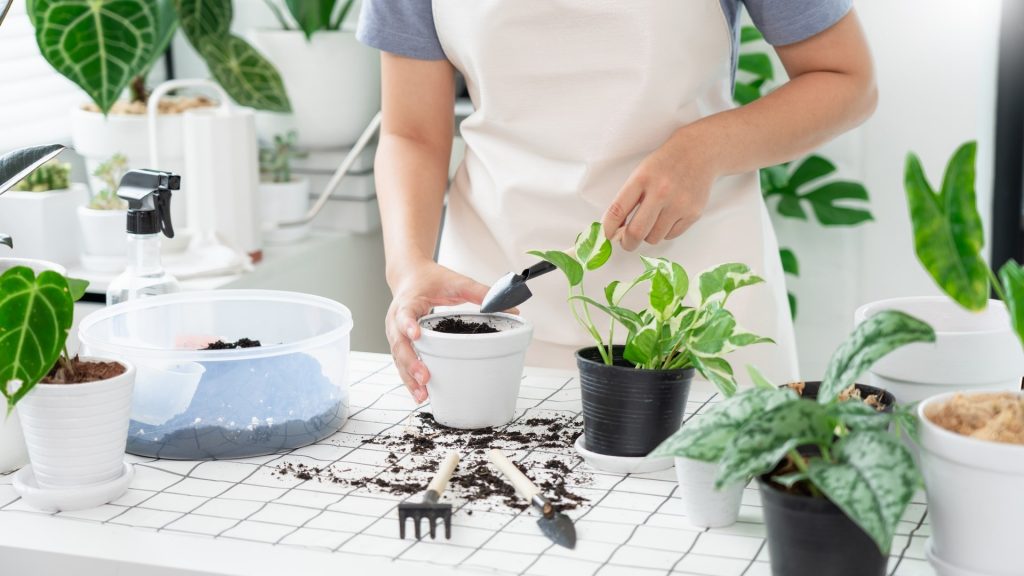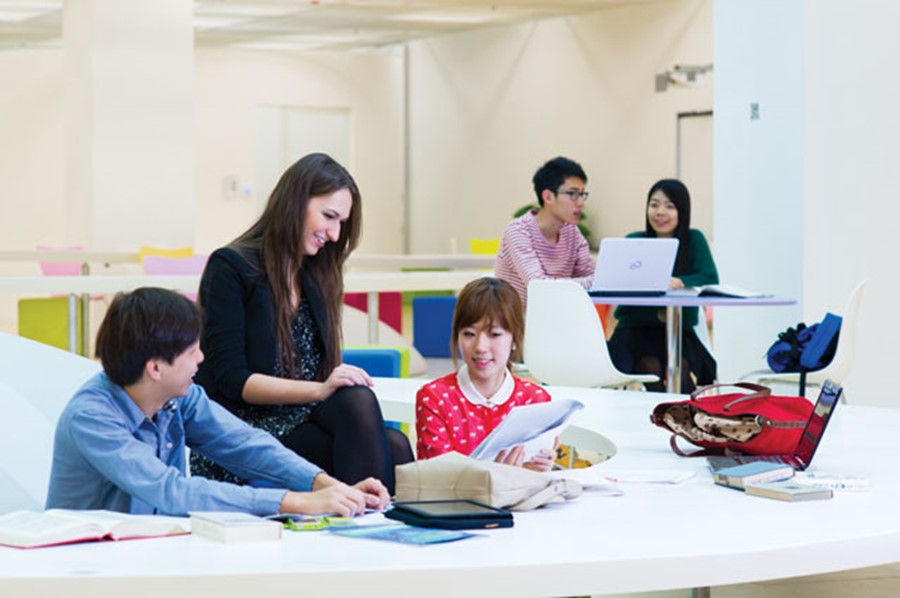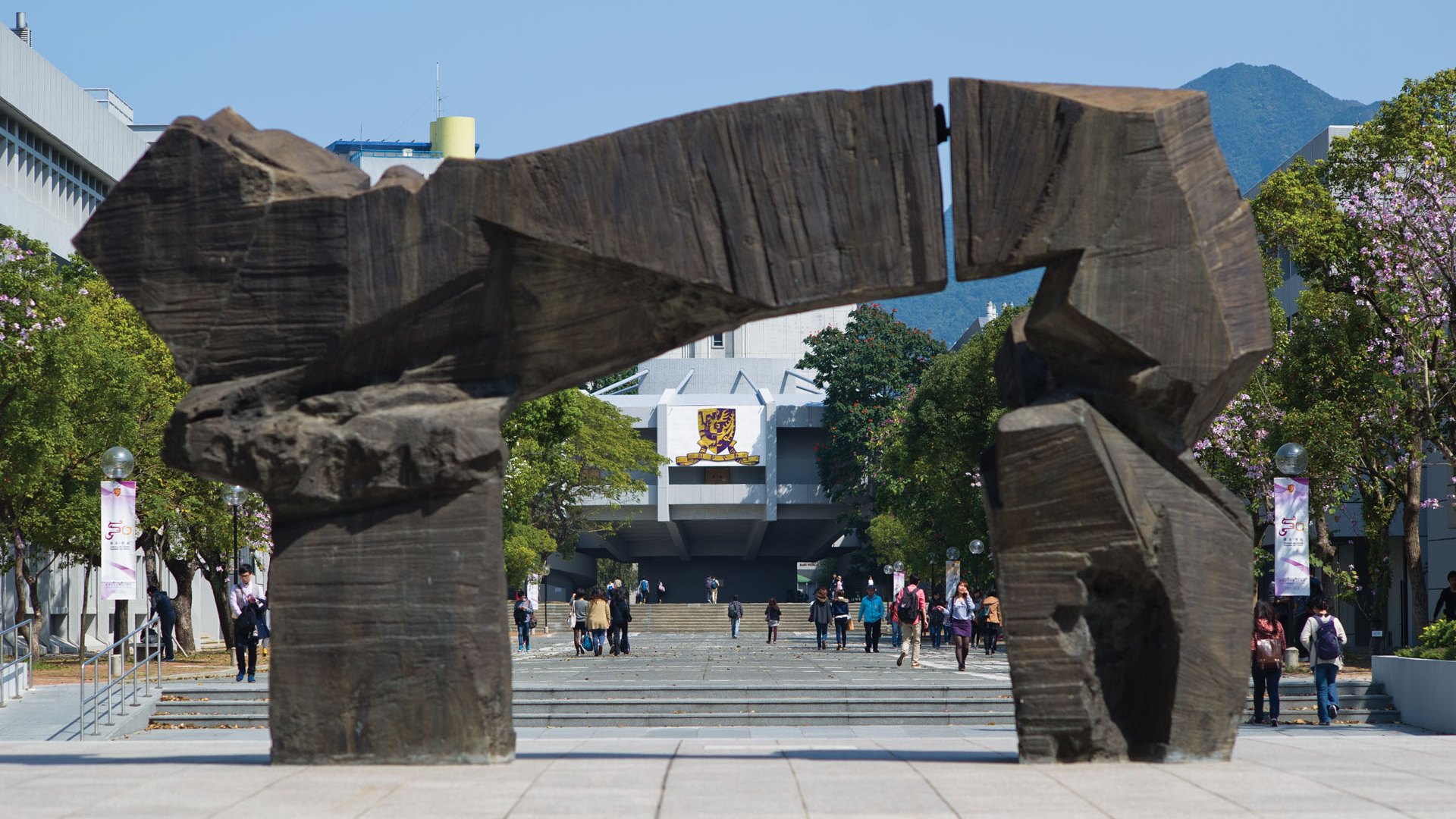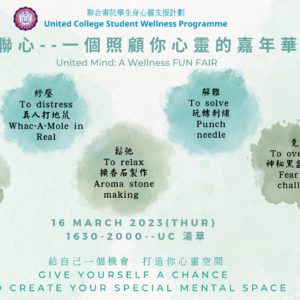As you prepare for postgraduate (PG) studies, you may be experiencing a mixture of emotions.
Anticipating Changes
You probably feel both excited and apprehensive towards entering this new phase in your life, which could be very different from your undergraduate years in the following ways:
- The PG enjoys greater autonomy and independence but needs to exercise even greater self-discipline in managing daily living, emotions, studies, relationships, etc.
- The PG needs to learn to balance multiple roles and responsibilities as scholar, teaching assistant, son/daughter, friend, spouse/partner, etc.
- The PG needs to enjoy working alone, but might also need to learn positive interpersonal and communication skills in relating to his/her supervisor, collaborators and peers.
- The PG who is studying in a foreign place will face additional stress and challenges in adjusting to a new cultural environment, particularly in the absence of established support systems, which usually takes time to build.
- Postgraduate studies rely on synthesis and integration of massive information rather than on rote memory.
- Postgraduate studies demand a mastery of academic knowledge, not merely regular class attendance and course examination results.

To help you adjust to the multiple changes as well as facilitate a smooth transition from being a student to a scholar, we have included useful tips and reminders on five topics (Pursuing Wellness, Building Relationships, Managing Studies, Handling Stress, and Crossing Culture) in here for your easy reference.
It is obvious that different facets of our lives are closely inter-related and influence each other both in positive and negative ways. Because of this, major principles which are of general applicability will reappear in various sections to highlight their importance to your pursuit of health, happiness and success.
Pursuing Wellness
Pursuing Wellness does not merely imply the absence of disease, but also being able to experience health, happiness, peace and satisfaction. Enjoying healthy foods or beautiful scenery alone may not instill a sense of well-being. Rather, by living smartly and attending to our daily routine according to the following principles, we may be able to safeguard our physical health as well as psychological well-being.

Build good health
Take proper care of our daily needs; develop a balanced and nourishing diet, ensure sufficient rest and sleep, exercise regularly. Try to avoid unhealthy habits such as smoking, drinking or drug abuse.
Organize our schedule
Develop and adhere to a realistic and manageable schedule to ensure a balanced daily routine as well as successful completion of important tasks.
Take time to relax
When we feel tired or stressed out, we could take short breaks to relax and renew our energy. Develop relaxation skills and pursue leisure activities that suit us, such as sports, music, outings, handicraft, etc.

Stay motivated
Reward ourselves with rest and recreation when we have done good work or achieved our work target. Strengthen your self-confidence by reflecting on positive experiences or daily achievements before going to bed each night.
Appreciate our positive qualities
Being over-demanding or over-critical towards ourselves might generate negative emotions and self-doubts. Recognize our own strengths and seek opportunities to actualize our potential.
Seek improvement
Avoid unnecessary comparison with others which can lead to envy or jealousy; on the other hand, seek continuous self-improvement by learning from positive role models.

Connect with others
Spend quality time with family and friends; it helps to consolidate relationships and release negative emotions. Get involved in community affairs and activities to broaden our horizon and expand our social network.
Enrich spiritual life
Develop personal strengths and resilience by reading inspiring books or pursuing self-enhancing experiences. Add joy and laughter to our life by nurturing a sense of humour.
“Attaining wellness through a healthy and balanced lifestyle is essential to our pursuit of success and happiness.”
Building Relationships
Having social and emotional support can make our postgraduate life more pleasurable and satisfying. It not only contributes to our psychological well-being, but is also important to our success in graduate school. In order to establish a strong supportive network, there are certain things that we can do:

Communicate with supervisor
We will be working closely with our supervisors in the coming years. Do not assume that supervisors / advisors can fully understand us or vice versa. It often takes time to adjust to each other and to cultivate a mutually trusting and understanding relationship. Meet with supervisors regularly to keep up with the progress. Discuss our ideas and concerns openly as well as consider our supervisors’ / advisors’ views and advice objectively.
Practise active listening
Show genuine interest in understanding others’ thoughts and feelings by active listening and attending to nonverbal communication. Listen patiently instead of jumping in with a suggestion, conclusion or criticism. Try to consider matters from the other person’s point of view.

Make new friends
Developing a new social network can be anxiety-provoking. Remind ourselves that anyone entering a new environment often feels uneasy initially and needs to go through an adjustment phase. Start by greeting our classmates, hallmates or colleagues with a warm smile, a friendly ‘hello’, or light conversation.
Get involved
We need to look for opportunities to get to know others better by participating in activities and events that we enjoy. We are likely to meet people who share similar interests and preferences there.
Maintain contact
After we have met someone whom we like and feel comfortable with, stay connected. Do not always wait for others to initiate contact or gatherings. Actively call, email, send instant messages to friends or organize get-togethers from time to time.

Capitalize on our strengths
Gain a good understanding of our interpersonal strengths such as genuineness, helpfulness, sense of humour, etc. and try to further enhance and manifest such strengths in interacting with others.
Accept differences
Cultivate an open and non-judgmental attitude towards others. Tolerate and accept interpersonal differences in character, values, lifestyles… Such differences can be interesting and inspiring.
Develop social skills
Actively develop positive social and communication skills by reading, training, or modelling on others’ behaviour.
“Developing healthy and satisfying interpersonal relationships is like growing plants in that both require attention and cultivation in order to flourish.”
Managing studies
Taking up postgraduate studies might have been an important decision and investment for many of us. It is therefore understandable that ensuring academic success would be our primary goal. As a good beginning is half success, it is hoped that the following reminders can lead us off to a good start:
Recognize differences
Postgraduate studies differ from undergraduate studies in that the focus is on students’ independent academic pursuits rather than class attendance. We are progressing from ‘students’ to ‘scholars’ and the assessment of our performance will be based on ongoing academic and/or professional development instead of Term GPA.

Collaborate with supervisor
A good working relationship with our supervisors/advisors is of paramount importance in determining whether our postgraduate studies would be productive and enjoyable. Build mutual trust and understanding through open and active communication. Meet with supervisors regularly so that they understand our progress. Clarify and agree on goals and expectations, responsibilities, work schedule, mode of supervision, etc. Convey our concerns and anxieties and actively seek advice and guidance from our supervisors/advisors as necessary.
Organize our work
Research and independent studies place greater demands on effective time-management, systematic organisation of our work and self-discipline. Keep a diary, plan our work schedule realistically, adhere to our plan as much as possible, review our strategy and redefine our work targets when we feel that we are not making satisfactory progress.

Balance multiple roles
For research students in particular, we may need to assume dual roles as ‘scholars’ and teaching assistants. Some of us may also need to take up outside work or fulfill family obligations. Review and understand our priorities at different periods in order to deploy our time and efforts sensibly and realistically. Seek others’ help and understanding when our responsibilities become overwhelming.
Socialize with peers
Enjoying positive relationships with our peers and colleagues in our department can enrich our social life as well as facilitate inspiring and constructive exchanges and collaborations in our academic pursuits and official responsibilities.
“As we pursue higher level studies, we are learning to go beyond documented data and information. In our quest for new knowledge and discoveries, we may experience occasional setbacks and frustrations. In such circumstances, it will be important for us to reaffirm our goals in taking up postgraduate studies and to maintain our curiosity, tenacity, optimism and perseverance in order to achieve eventual success.”
Handling stress
The transition from undergraduate to postgraduate studies often involves environmental changes as well as intellectual and developmental challenges. Academic pressure, financial concern, relationship with supervisor and other factors can create stress and anxiety for many postgraduate students, affecting both their physical and psychological health. It is therefore important to safeguard your well-being and effectiveness in daily functioning and academic performance by developing useful stress-management skills.

Identify stress reactions
Start by learning to detect the following common signs and symptoms of persistent stress:
Physiological Reactions
- Clenched jaw, facial tension
- Headache, dizziness
- Chest and gastrointestinal discomforts
- Insomnia
- Chronic colds, flu
- Changed appetite
- Dry mouth
- Rapid heartbeat
- Muscle pain, easy to feel tired
Psychological Symptoms
- Irritability, impatience
- Anxiety
- Inability to concentrate
- Proneness to accidents and errors
- Reduced efficiency and productivity
- Unable to feel happy
- Lose interest to previously enjoyable activities
- Withdraw from usual social activities
- Over worry towards issues in study, family or daily living, difficult to relax

Exercise regularly
Doing exercise can release neurochemicals in the brain, such as endorphin, which can relieve pain and generate pleasure. A research showed people who do physical exercise for 30-60 minutes each time, 3-5 times a week, are associated with lower mental health burden. Besides, at least 150 minutes of moderate-intensity physical activity per week, such as brisk walking, enables us to enjoy most of the health benefits.
Learn to relax
Practise deep breathing or simple stretching movements. Training and material on progressive muscular relaxation and other exercises can also be obtained from Sunshine@CUHK website.
Regulate emotions
Let our feelings out by talking, laughing, crying or writing them down. Emotional ventilation can help lighten the psychological burden.

Think flexibly
Try not to over-react to or exaggerate the consequences of difficult situations. Remain optimistic and focus on developing practical and flexible ways of solving immediate problems instead of worrying too much about future outcome.
Strengthen social support
Spend time with people who can understand and give us strength. A strong support system might buffer us from the negative effects of stress.
Manage time effectively
Specific strategies such as setting goals and priorities, developing an action plan, overcoming procrastination and organising time might help in managing the numerous demands and stress placed upon us.

Seek help
When necessary, actively seek help from family, friends, professors or service units on Campus.
“Remember, stress is a part of life. We may not be able to get rid of stress but we can try to keep it under control. Moreover, an appropriate level of stress might sometimes act as our positive motivator in meeting daily demands and life’s challenges.”
Crossing cultures
Studying and living abroad can be both exciting and challenging. When living in our home towns, we might have easier access to resources and support to deal with difficult situations which may not be available to us now. As a result, we may feel anxious, helpless and alone here especially in times of trouble. However, rest assured that many of our adjustment reactions are common but temporary. Let’s be patient and give ourselves time to get over the initial stress and confusion. The following suggestions can help us gradually fit into and enjoy the new environment:
Establish a healthy daily routine
To make life more stable and comfortable, it is essential for us to develop a balanced and healthy daily routine that can adequately attend to our physical and psychological needs (eat, work, rest, play…).

Explore your new environment
Actively explore different parts of our campus and Hong Kong. Seek information about services and resources available to us in the University and local community so that we can obtain appropriate assistance when necessary. We will feel more secure and at ease when we have familiarized ourselves with our new surroundings.
Strengthen social support
Maintain regular contact with family and friends back home as well as network with students from our hometown. We can acquire the social and emotional support that we need particularly during our initial arrival to a foreign place.
Socialise with local students
Befriend local students although it may take extra efforts to overcome language and cultural barriers initially. They can become our cultural informants, local resource persons or even life-long friends.

Be open and non-judgmental
Do not reject or criticize aspects of the local culture that may seem strange or confusing at first. Try to understand, respect, accept and even appreciate such diversities.
Be adventurous and flexible
Do not be afraid to make changes or try out new things (food, pastime, social practices…). Experiment with new ways instead of clinging on rigidly to old habits. We may develop new tastes, interests or perspectives that can enrich our lives.
Develop stress-management strategies
As everyone is bound to experience various levels of stress from time to time, it is important to develop ways to relax or reduce stress that are appropriate and effective for us, such as sports, social gatherings, art, music, etc.

Integrate into the community
Expand our social circle and become a true member of the community by actively participating in various academic/extra-curricular activities and organizations both on campus and in the local community.
“Seize this opportunity to become more independent and adaptable, to broaden our horizon and to appreciate cultural diversities.”
If you need any assistance, please do not hesitate to contact the Learning and Cultural Enhancement Section, Office of Student Affairs or community resources from the Support & Resources Hub.
“If we could learn how to balance rest against effort, calmness against strain, quiet against turmoil, we would assure ourselves of joy in living and psychological health for life.”
Josephine Rathbone




